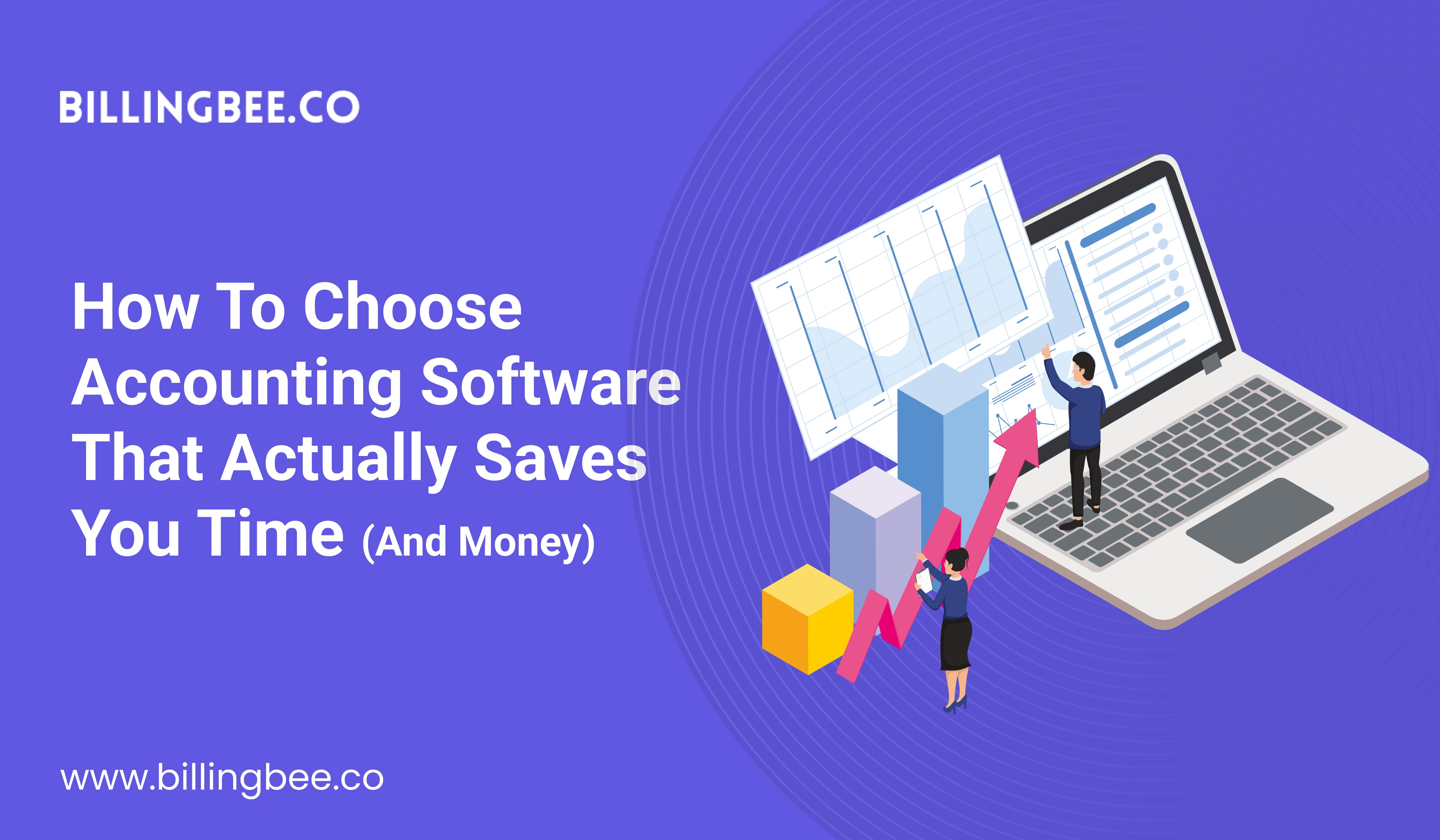How to Choose Accounting Software That Actually Saves You Time (and Money)




When you’re running a small business, your time and money are your most valuable resources. You don’t want accounting software that feels like a second job—you want tools that free you up to focus on growth, clients, and strategy. That’s why choosing accounting software is no longer about just recording transactions. It’s about picking a system that streamlines your operations, reduces errors, and integrates seamlessly with the way you already work.
And here’s the catch: the best accounting software for small business isn’t the one with the longest feature list—it’s the one that actually saves you time and money.
Why the Wrong Accounting Software Costs More Than You Think
Many small businesses unknowingly waste hours every week on repetitive tasks like reconciling bank statements, chasing invoices, or manually preparing tax reports. If your current system feels clunky or forces you to constantly “work around it,” it’s not just frustrating—it’s expensive.
Think about it:
- Every hour spent fixing errors is an hour you’re not serving clients.
- Every missed payment reminder could mean cash flow headaches.
- Every outdated feature delays business decisions.
The right accounting software doesn’t just manage your books; it quietly becomes the backbone of your business, reducing hidden costs and giving you back control.
What to Look for in Accounting Software (That Truly Works for Small Businesses)
Before you get dazzled by flashy dashboards or technical jargon, focus on these essentials:
1. Simplicity That Scales
You don’t need an interface that looks like it was built for Fortune 500 CFOs. Instead, look for software designed for small business owners—intuitive, with a short learning curve. Your team should be able to get started without a week of training.
2. Automation Where It Matters
The biggest time-saver? Automation. Look for software that automatically:
- Generates invoices and sends payment reminders
- Categorizes expenses from bank feeds
- Prepares tax-ready financial summaries
With these automations, you’re not just faster—you’re also reducing the risk of human error.
3. Cloud Access Anytime, Anywhere
In 2025, business isn’t tied to a desk. You might be reviewing expenses from an airport lounge, sending invoices from a coffee shop, or approving payroll from your phone. Cloud-based accounting software ensures that your data is always accessible, secure, and synced across devices.
4. Real-Time Insights, Not Just Reports
Traditional accounting systems focus on what already happened. Modern tools give you real-time visibility into your cash flow, upcoming expenses, and overdue invoices. This means you’re not just tracking history—you’re steering your future.
5. Affordable Without Compromising Features
Small businesses often assume “affordable” means “basic.” But the best tools strike a balance: powerful enough to handle growth, yet cost-effective enough to fit a lean budget.
How the Right Choice Saves Time and Money
Faster Invoicing
Imagine this: Instead of creating invoices manually, your system auto-fills client details, calculates taxes, and sends payment reminders. That’s hours of admin reduced to minutes.
Reduced Errors
A typo in a spreadsheet can lead to compliance fines or missed tax deductions. Intelligent accounting software catches discrepancies before they cost you.
Improved Cash Flow
By automating reminders and providing instant visibility, you’re no longer guessing when money will come in. You’re in control.
Better Decision-Making
When you can see financial data in real time, you can answer critical questions immediately:
- Can I afford to hire a new employee?
- Is this client project profitable?
- Should I invest in new tools this quarter?
Interactive Checklist: Is Your Current Software Holding You Back?
Ask yourself:
- Do I spend more than 2 hours per week fixing accounting errors?
- Do I still manually track invoices or expenses?
- Is my data stuck on one computer or device?
- Am I surprised by cash flow gaps?
If you answered “yes” to any of these, it might be time to upgrade.
Why Small Businesses Around the World Are Switching to Smarter Tools
Global entrepreneurship is on the rise, and the competition isn’t just local anymore. Whether you’re a freelancer in Berlin, a boutique agency in New York, or a retailer in Mumbai, your ability to stay agile depends on the systems running your back office. The best accounting software for small business is the one that adapts to your workflow, grows with you, and empowers you to focus on delivering value to your customers.
Introducing BillingBee: Built for Businesses That Value Time
At BillingBee, we’ve seen firsthand how small businesses struggle with clunky, outdated tools. That’s why our platform is designed with one goal: to give you your time back. With automation, real-time insights, and global accessibility, BillingBee isn’t just another software—it’s your financial partner.
You don’t have to choose between saving time and saving money. With the right software, you can have both.
Choosing accounting software is no longer a back-office decision—it’s a growth strategy. The right system reduces stress, improves accuracy, and ensures your business is always moving forward.
So, the question isn’t whether you can afford modern accounting software. It’s whether you can afford not to.